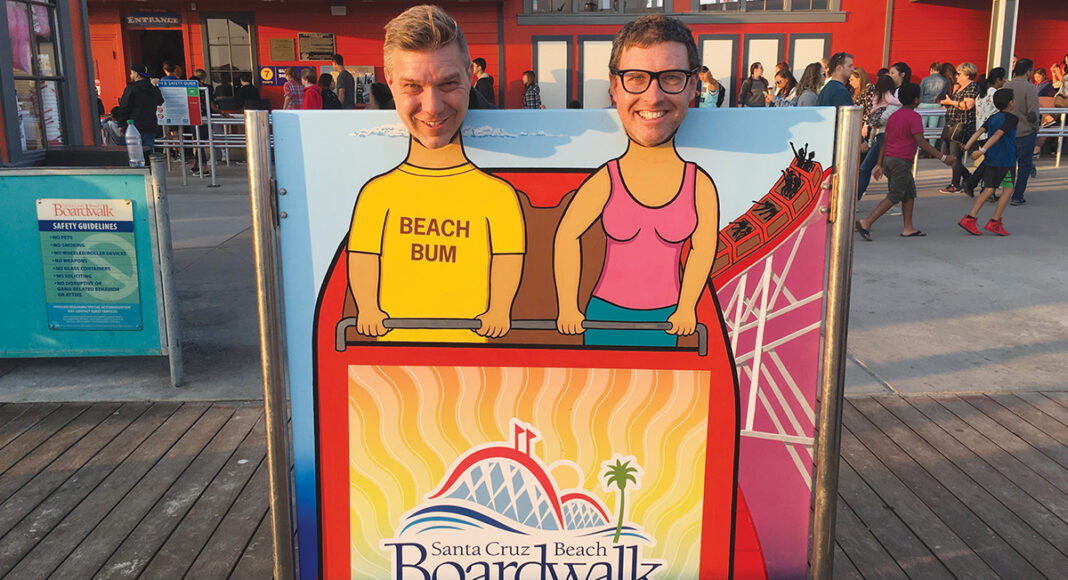The one supposed upshot of the Trump presidency was that it was going to usher in a new era of fierce protest music. Four years later, however, most artists have steered clear of politics.
But not singer-songwriter David Dondero, a folk troubadour with 10 albums under his belt, who was once named one of the 10 greatest living songwriters by NPR, alongside Paul McCartney, Tom Waits and Bob Dylan. Politics have been an overwhelming concern for Dondero since Trump got elected.
“It was where my head was at—how unsettling and horrible it’s been,” Dondero says. “I haven’t seen a lot of people protesting, as much as I thought would be. There’s an aloofness of non-participation. Like 46% of the people don’t even vote. When people don’t participate, you see what we get.”
Dondero’s travelled all over the country, sometimes in the deep-red counties of the reddest states and performed these songs, like the particularly poignant “Presidential Palace of Pornography.” (“Now the presidential palace of bigotry/The treasonous office of impunity/They’ve got a magic weapon and it’s smoke and mirrors/As the Grand Ol’ Party all hail to their furor.”) Audiences don’t always respond well.
“Sometimes they walk out and flip me the middle finger. I try to figure out ways to have some kind of dialogue. Almost every time, the dialogue is just the middle finger. They’re not willing to talk about it.” Dondero says.
Earlier this year, Dondero released these songs on his latest record The Filter Bubble Blues, recorded right here in Santa Cruz with local musician Dan Potthast producing and playing backing instruments, along with other local musicians like Hod Hulphers, AJ Marquez and Shannon Toombs.
The album is so timely, with references to things like Mueller and Charlottesville, it runs risk of not being relatable in the near future. Dondero hopes that happens.
“I hope it’s dated. I hope it can historically be remembered as this record—this ‘big giant mistake’ period,” Dondero says. “I hope it’s not something I have to keep writing about.”
The record was built off of Dondero and Potthast’s close friendship. They met a decade ago at a Crepe Place show Dondero was playing, and became fast friends. Some years later, Dondero recorded “Rock Bottom” in Potthast’s living room while in town. Dondero liked the experience so much, he asked Potthast if he could record a full-length album in his apartment.
“I’ve done stuff in studios. I prefer a more relaxed atmosphere where it’s not relegated by time,” Dondero says. “Playing with Dan in the past was always really relaxing. He really makes you feel at ease while recording.”
The recording was spread out over late 2018 and early 2019—simple folk songs with light accompaniment. Potthast first recorded Dondero singing and playing his guitar, and would layer other instruments and backing vocals on top, including drums. This backward process gave the songs this very human, easy feel to them, which contrasted the anger and disgust of some of the lyrics.
The topics—Trump, social media polarization, gun violence, racism—were not easy for Dondero to sing about.
“He feels the moment more than most people,” Potthast says. The process was difficult for him. Sometimes he had to get up and pace, or just stop. We would have to go ride a roller coaster or ride a tandem bike around town. Come back home and give it another shot. And he would bust it out.”
Dondero, who will be playing a private house show locally on Sunday, Feb 23, hopes this record will do more than anger people. He wants people to engage in dialogue, something he tries to do at his shows. He recalls one debate he had with a man in Alpine, Texas who told him how great it felt to fire his gun.
“We definitely agreed to disagree. I had a good time talking to him at least. He was willing to talk without having a fight,” Dondero says. “It’s getting easier to dehumanize people that don’t share your viewpoints, and it’s being done to an extreme level, which is creating effects like people getting murdered.”
For his next album, Dondero is hoping to highlight our similarities—despite our vehement political differences—by singing songs about the 16 states he’s lived in.
“I love driving around in America—the beauty of America,” Dondero says. “I’m a patriotic person. I’ve lived in all kinds of places all over this country. There’s good people everywhere I’ve gone. I’m excited to go around the country again.”













